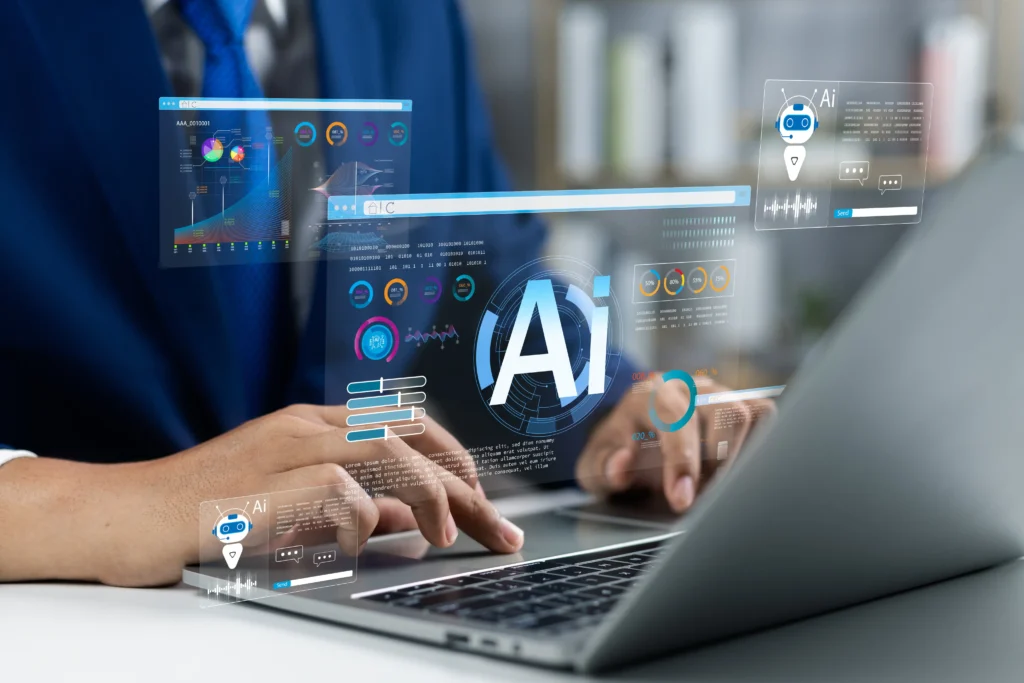Top 10 Benefits of Adaptive AI Development for Businesses
Discover the top 10 benefits of Adaptive AI Development and how it empowers businesses with smarter decisions, agility, and scalable innovation.
Artificial Intelligence (AI) is no longer a futuristic concept; it’s a core driver of innovation, productivity, and competitiveness. As AI technologies mature, a new wave—adaptive AI—is gaining traction. Unlike traditional AI models that require retraining to improve or adjust, adaptive AI systems evolve continuously, learning in real-time from new data and changing conditions.

This flexibility makes adaptive AI a game-changer for modern enterprises. In this article, we explore the top 10 benefits of adaptive AI development and how it is helping businesses thrive in an increasingly dynamic world.
1. Real-Time Learning and Adaptation
One of the most powerful features of adaptive AI is its ability to learn and adjust in real-time. Unlike static AI models, adaptive AI systems don’t need to be taken offline for retraining. They process new information instantly and update their predictions or behaviors accordingly.
Business Impact: Companies can respond immediately to customer feedback, market shifts, or operational anomalies. For example, adaptive AI in e-commerce can instantly alter product recommendations based on a user’s current session behavior.
2. Increased Operational Efficiency
Adaptive AI reduces the time and effort spent on retraining models and recalibrating systems. This minimizes downtime and streamlines operations across various departments—from supply chain and logistics to HR and finance.
Business Impact: Adaptive AI-powered systems can automatically optimize workflows, adjust resource allocation, and improve throughput without human intervention, leading to faster decision-making and leaner operations.
3. Improved Customer Personalization
Today’s consumers expect hyper-personalized experiences. Adaptive AI enables businesses to tailor offerings in real-time, considering evolving preferences and behaviors.
Business Impact: In sectors like retail, banking, and digital media, adaptive AI can deliver personalized product recommendations, dynamic pricing, and customized content, resulting in higher engagement and conversion rates.
4. Enhanced Decision-Making
Adaptive AI augments human intelligence by providing data-driven, context-aware recommendations that evolve as situations change. It can surface patterns and insights that would otherwise go unnoticed.
Business Impact: Executives and managers can make better, faster decisions across everything from risk management and fraud detection to investment strategies and customer service optimization.
5. Cost Savings Through Automation
Adaptive AI drives cost-efficiency by automating complex processes and reducing the need for manual oversight or frequent reengineering of AI models.
Business Impact: Businesses save money on data science labor, system downtime, and infrastructure costs. For example, in customer support, adaptive AI chatbots learn from interactions and reduce the volume of human-assisted tickets.
6. Faster Time-to-Market
By continuously learning and adapting, adaptive AI can shorten the development and deployment cycles for AI applications. Companies no longer need to pause operations to reconfigure models every time conditions change.
Business Impact: Faster iteration allows businesses to roll out new features, test product ideas, and scale AI solutions more rapidly—an essential edge in competitive industries like tech, retail, and finance.
7. Robust Risk Management and Compliance
Adaptive AI excels in scenarios that involve constant change and unpredictability, such as cybersecurity, financial compliance, and regulatory environments.
Business Impact: These systems can detect anomalies in real-time, adapt to new threats or regulatory requirements, and proactively update their logic to ensure compliance, reducing exposure to financial or reputational risks.
8. Better Scalability Across Use Cases
Once implemented, adaptive AI can be scaled more easily across departments or geographies because it self-adjusts to new data environments without extensive reprogramming.
Business Impact: A multinational company can deploy a single adaptive AI framework that customizes itself for each region’s customer behavior, legal norms, or market conditions, resulting in consistent yet localized outcomes.
9. Continuous Improvement Without Reengineering
Traditional AI systems become outdated if not frequently updated with new data. Adaptive AI systems continuously refine themselves, allowing businesses to maintain peak performance over time.
Business Impact: Enterprises can stay ahead of the curve, improving models without costly overhauls. This is particularly useful in industries like healthcare, where new data and treatment protocols constantly emerge.
10. Competitive Advantage Through Agility
Agility is key in the modern business landscape. Adaptive AI provides the technological backbone to pivot rapidly, identify emerging opportunities, and stay ahead of slower-moving competitors.
Business Impact: Companies leveraging adaptive AI can quickly adjust their business strategies based on real-time market intelligence, giving them a strategic edge in fast-changing environments like fintech, retail, and logistics.
Real-World Examples of Adaptive AI in Action
1. Amazon
Amazon’s recommendation engine constantly adapts to user behavior, seasonal changes, and global shopping trends. This allows the company to maintain high customer satisfaction and increase sales without manual intervention.
2. Netflix
Netflix uses adaptive AI to adjust its content recommendations based on viewing history, time of day, device type, and even global cultural shifts, ensuring high engagement and subscriber retention.
3. JP Morgan Chase
The bank uses adaptive AI in fraud detection, where transaction patterns are continually analyzed in real-time to flag suspicious activity without needing a static rule set that becomes obsolete quickly.
Conclusion
Adaptive AI is no longer an experimental frontier—it’s becoming a core component of modern business infrastructure. As industries strive for agility, personalization, and continuous innovation, businesses that invest in adaptive AI development will find themselves better equipped to navigate change, maximize efficiency, and outpace their competitors.
Whether you're a startup aiming to disrupt the market or a legacy enterprise looking to modernize, adaptive AI can be a transformational force if developed and deployed with strategic intent.